Schwartz Reisman Institute
The Schwartz Reisman Institute for Technology and Society is a research and solutions hub dedicated to ensuring that powerful technologies like artificial intelligence are safe, fair, ethical, and make the world better—for everyone. With researchers in fields ranging from law, philosophy, and political science to computer science, engineering and beyond, the Institute will develop new frameworks to understand the social implications of technologies in the present age, and reinvent laws, institutions, and social values to ensure technology is designed, governed, and deployed to deliver a more just and inclusive world.
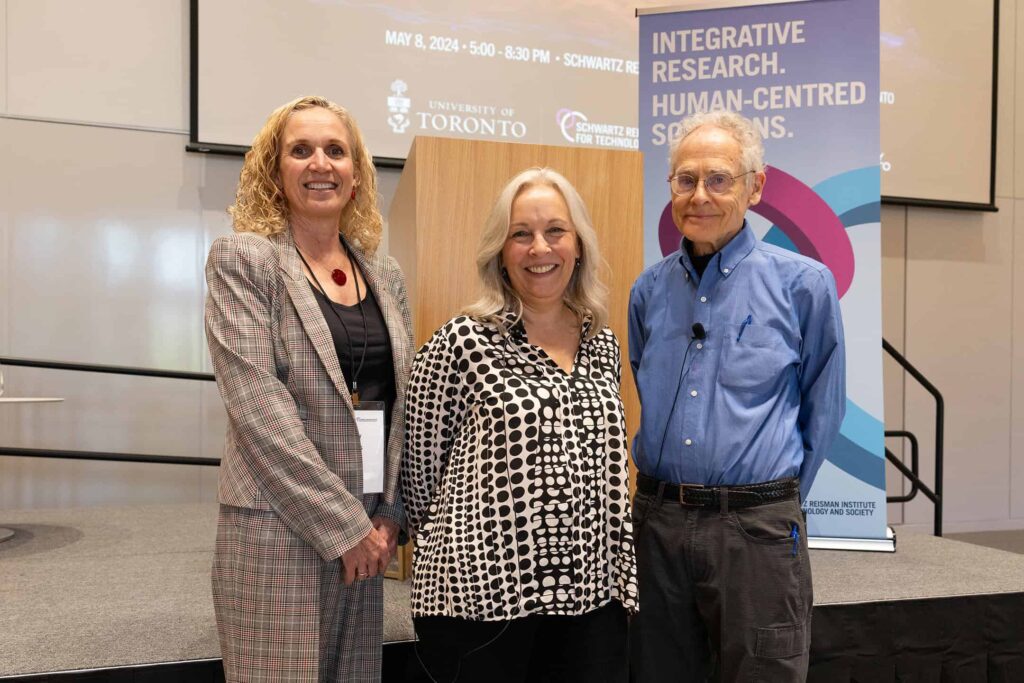
Agency of artificial intelligence and human input
The highly anticipated Schwartz Reisman Institute for Technology and Society’s annual Absolutely Interdisciplinary conference connected researchers and industry experts of varying specializations with the public to discuss key findings, problems, and the next steps in artificial intelligence (AI) research.
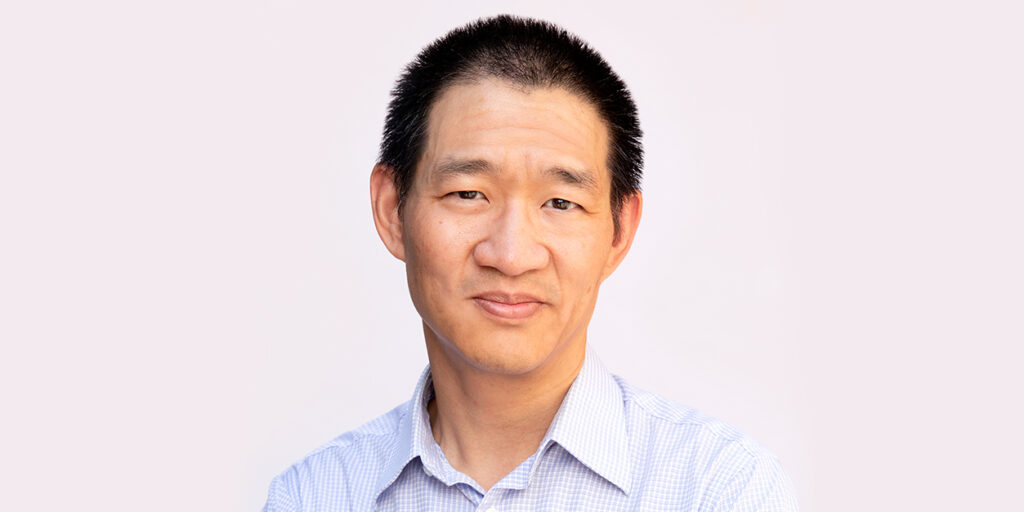
Professor David Lie appointed director of the Schwartz Reisman Institute for Technology and Society
World-leading computer security expert Professor David Lie (ECE) will take on the role of the Schwartz Reisman Institute for Technology and Society (SRI) director; while Professors Roger Grosse and David Duvenaud — two renowned artificial intelligence safety experts — are being appointed Schwartz Reisman Chairs in Technology and Society.

A Global Hub for Safe AI
The Schwartz Reisman Innovation Campus will help develop artificial intelligence that benefits humanity – from ideas and scholarship to successful startups

Globe and Mail: "The architecture of AI: U of T’s new research hub rises"
Alex Bozikovic for the Globe and Mail. Artificial intelligence has a new home in Toronto. A tapered block rises 12 storeys from the corner of College Street and Queen’s Park Crescent, its walls slanting inward on the way. Its cloak of concrete scatters sunlight off diagonal facets, evoking the stony majesty of a cliff face.
This enigmatic object is the University of Toronto’s new Schwartz Reisman Innovation Campus.
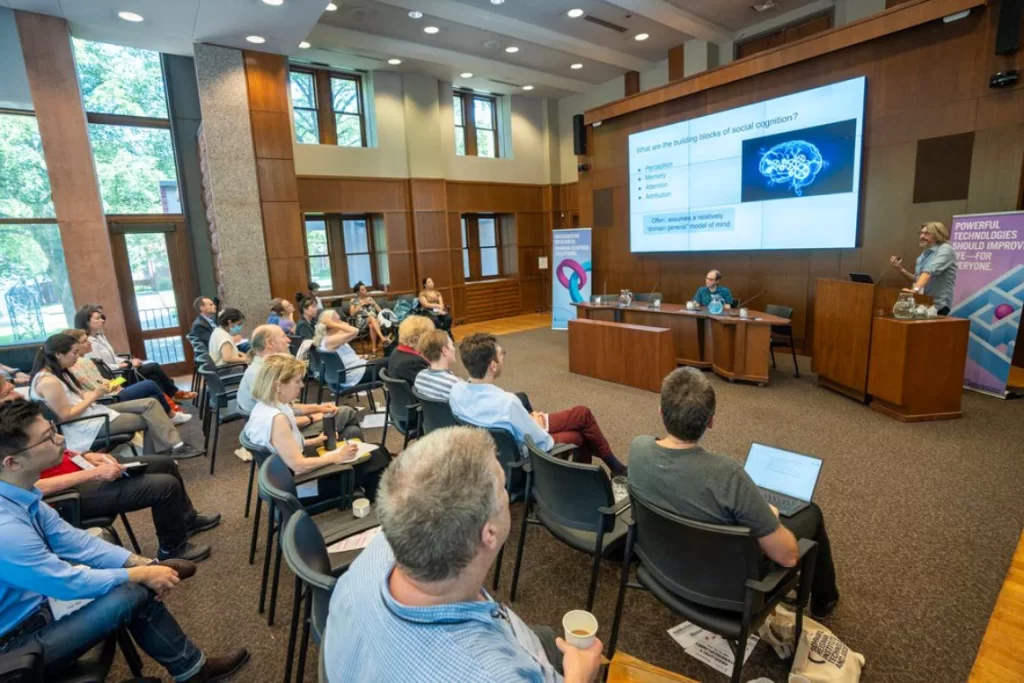
Researchers explore shifting AI landscape at Absolutely Interdisciplinary conference
Researchers across disciplines gathered recently at the Absolutely Interdisciplinary conference to reckon with the ramifications of the evolving AI landscape – from the technology’s transformative impacts on work and education, to its implications for human cognition and values.
The third annual academic conference held by the Schwartz Reisman Institute for Technology and Society (SRI) at the University of Toronto featured 23 speakers from diverse fields such as computer science, psychology, law, economics, education, philosophy, media studies, and literature.

U of T researchers developing AI system to tackle harmful social media content
What if we used artificial intelligence to combat such harmful content such as hate speech and misinformation? That’s the goal of a team of University of Toronto researchers who were awarded a Catalyst Grant by the Data Sciences Institute (DSI) to develop an AI system to address the marginalization of communities in data-centric systems – including social media platforms such as Twitter.
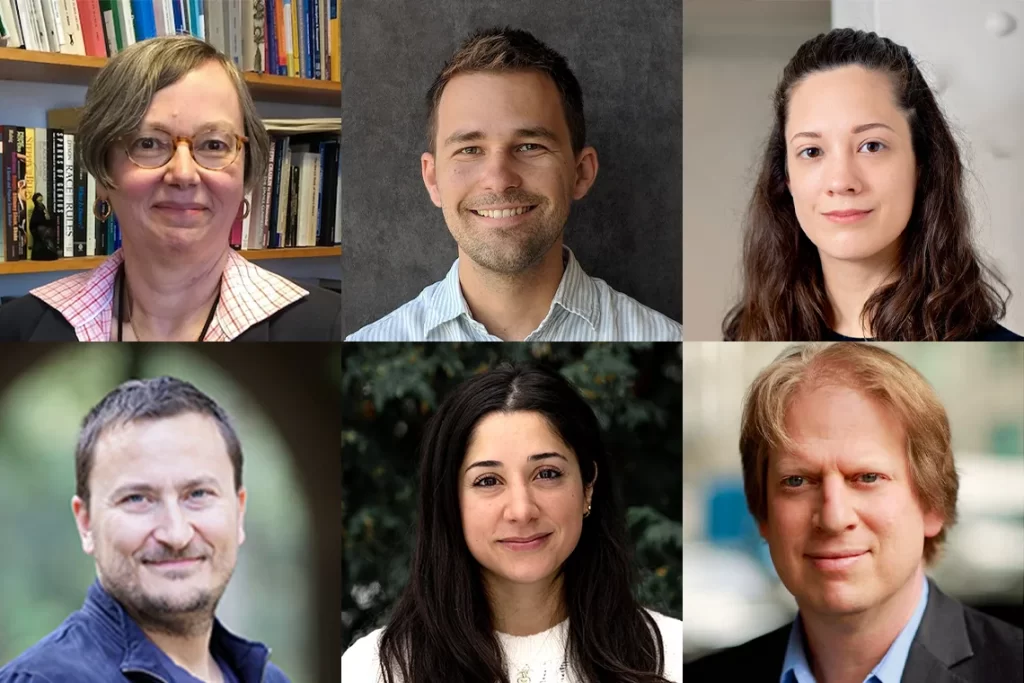
Brave new tech: Experts say AI tools like ChatGPT – and the ethical questions they raise – are here to stay
In recent months, news headlines have outlined the issues relating to generative AI tools and content. Illustrators, graphic designers, photographers, musicians and writers have expressed concerns about losing income to generative AI and having their creations used as source material without permission or compensation.
On the academic front, instructors are having to cope with students submitting work written by ChatGPT and are re-evaluating how best to teach and assess courses as a result. Institutions such as U of T are examining the ramifications of this technology and providing guidelines for students and instructors.
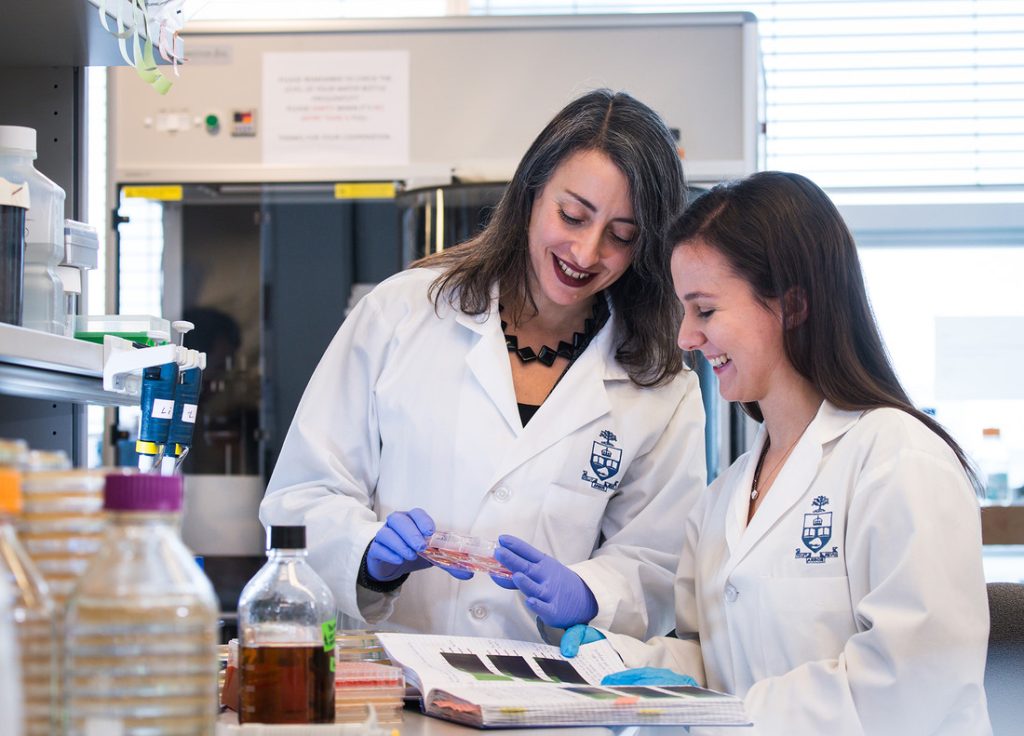
Canada’s opportunity in the future of genomics
One of U of T’s strengths lie in human genomics, which is supported by top-ranked faculty and researchers, anchored by a strong network of affiliated hospitals and medical research centers. Together, this network continues to advance frontiers of knowledge in critical areas of genomics including genetic susceptibility to disease, personalized medicine, machine learning for biomedical data, and more. Innovation hubs like the Emerging and Pandemic Infections Consortium (EPIC), Precision Medicine Initiative (PRiME), Medicine by Design, and the Structural Genomics Consortium are part of a network of high-impact interdisciplinary research centres that leverage areas of focus such as infectious disease, regenerative medicine, cell therapy, drug discovery, open science and more.
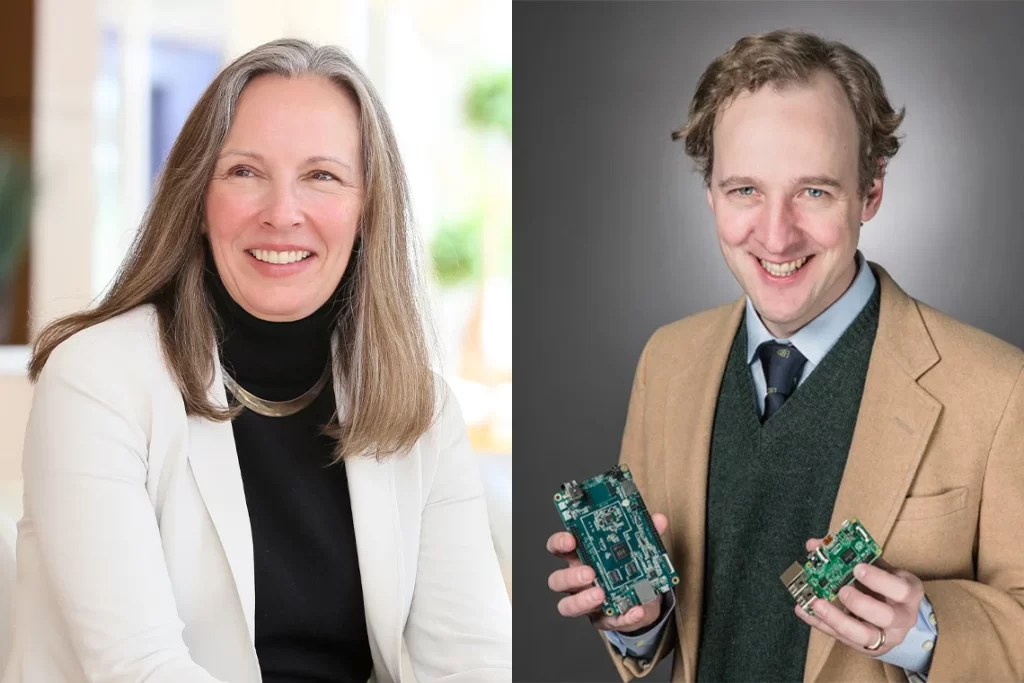
Two U of T professors named Canada CIFAR AI Chairs
University of Toronto professors Gillian Hadfield, director of the Schwartz Reisman Institute for Technology & Society, and Anatole von Lilienfeld, of the department of chemistry in the Faculty of Arts & Science, have been named Canada CIFAR AI Chairs in recognition of their global leadership in artificial intelligence research.
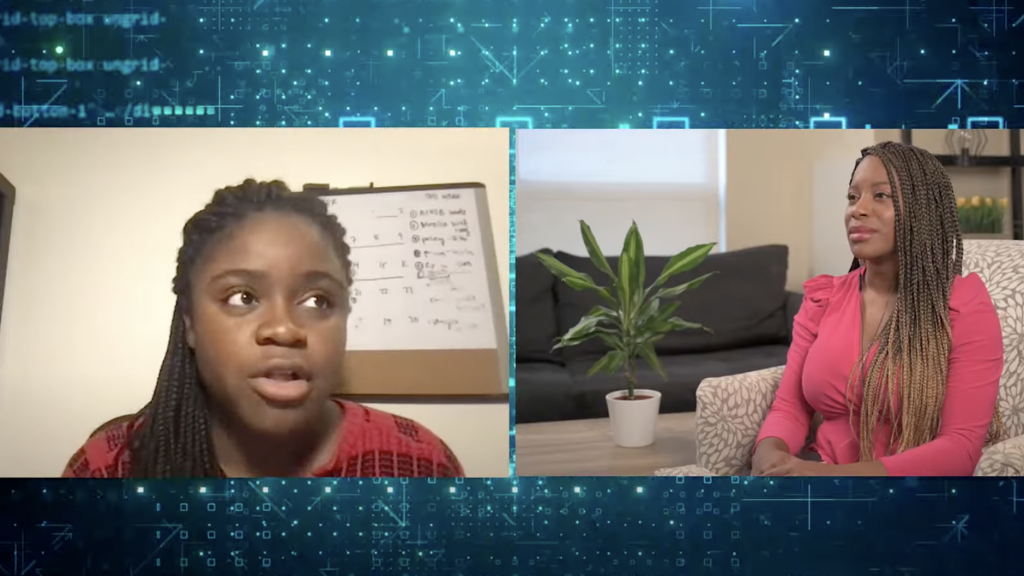
AI, tech and social justice: U of T Groundbreakers EP4
What is the relationship between pollution and colonialism in Canada? How can AI and related technologies avoid perpetuating racism and gender bias? These are some of the questions explored in episode four of the Groundbreakers video series when host Ainka Jess speaks with researchers from two of the University of Toronto’s Institutional Strategic Initiatives: the Schwartz Reisman Institute for Technology […]
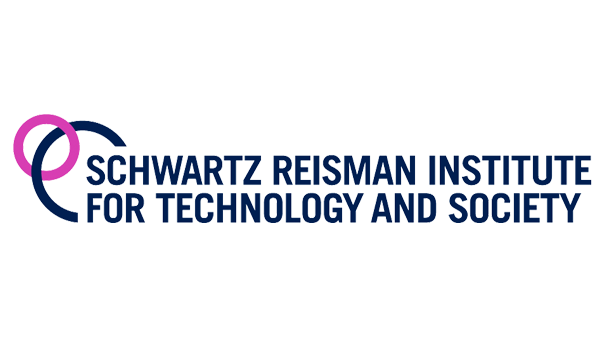
Schwartz Reisman Institute for Technology and Society (SRI)
The Schwartz Reisman Institute for Technology and Society is a research and solutions hub dedicated to ensuring that powerful technologies like artificial intelligence are safe, fair, ethical, and make the world better—for everyone. With researchers in fields ranging from law, philosophy, and political science to computer science, engineering and beyond, the Institute will develop new frameworks to understand the social implications of technologies in the present age, and reinvent laws, institutions, and social values to ensure technology is designed, governed, and deployed to deliver a more just and inclusive world.
